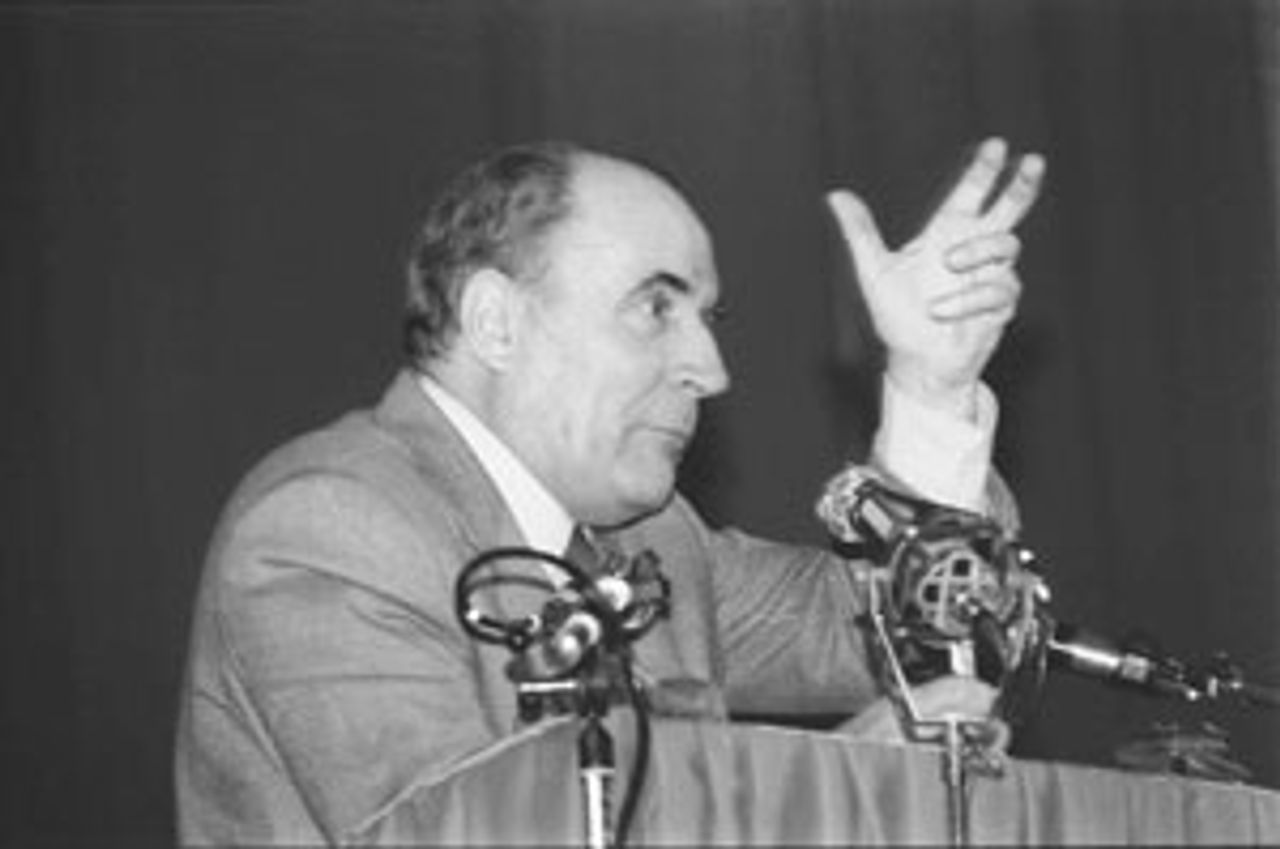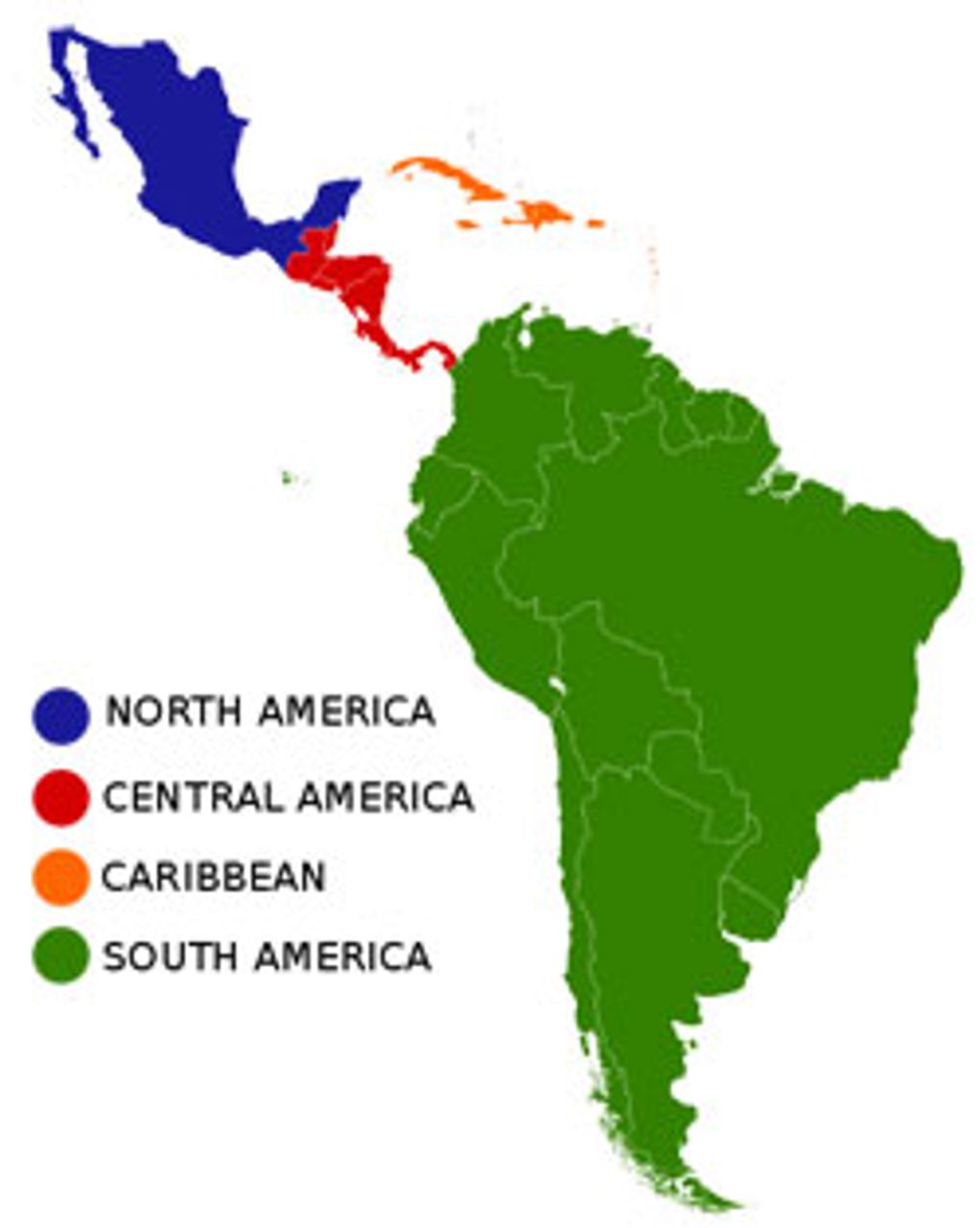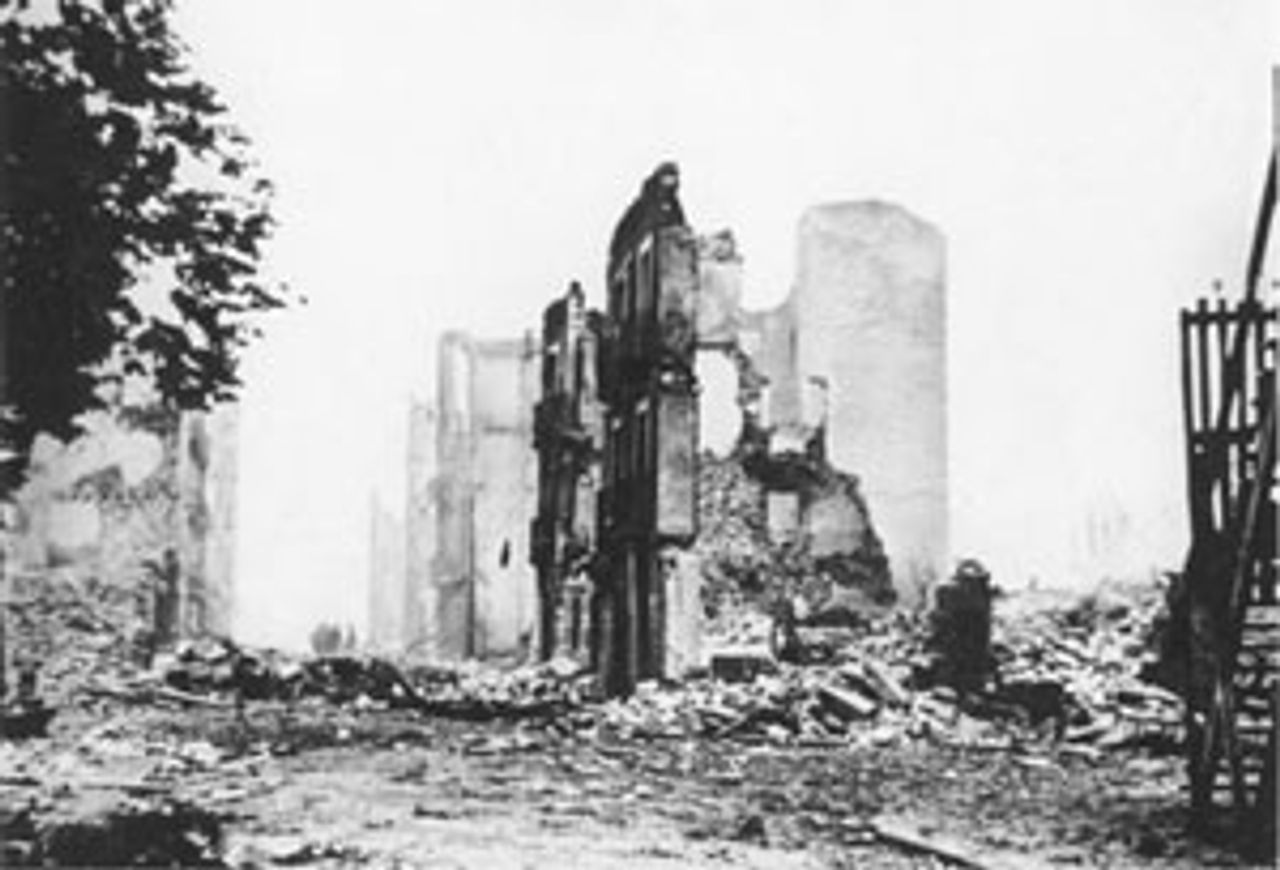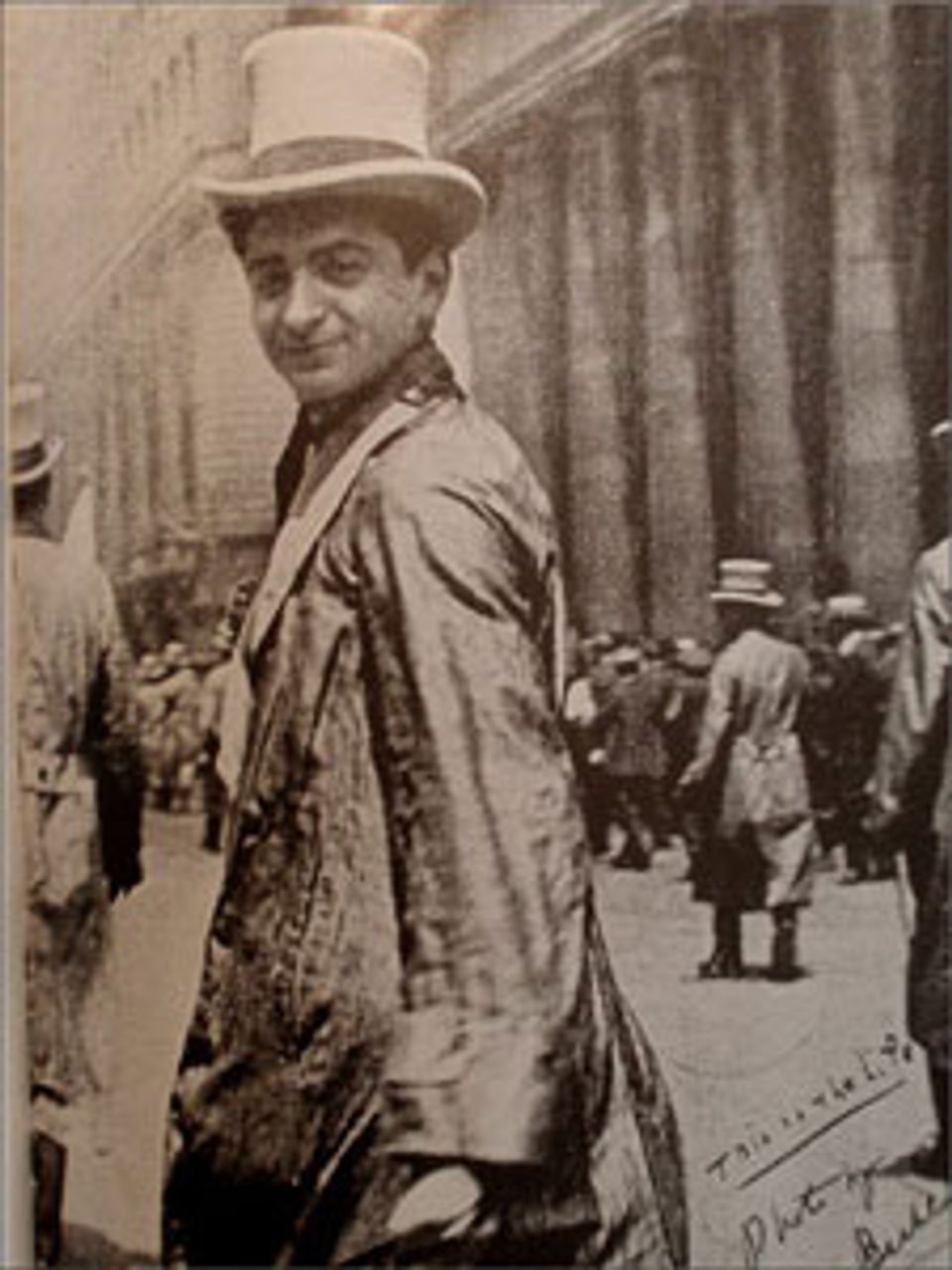This Week in History provides brief synopses of important historical events whose anniversaries fall this week.
25 Years Ago | 50 Years Ago | 75 Years Ago | 100 Years Ago
25 years ago: French right victorious in elections
 Mitterrand in 1981
Mitterrand in 1981The French right wing won parliamentary elections held March 16, 1986, defeating the Socialist Party (PS) and French Communist Party (PCF), both of which saw their vote totals fall sharply over the previous national elections.
The right-wing grouping led by Rally for the Republic (RPR) and Union for French Democracy (UDF) won 45 percent of the vote and 290 seats in Parliament. The PS, the party headed by French President Francois Mitterrand, won 42 percent of the vote and 248 seats. The election saw the dramatic rise of the far-right and xenophobic National Front of Jean-Marie Le Pen, which won nearly 10 percent of the vote and was awarded 35 seats in Parliament—the same total of the PCF.
The election was a rebuke to the PS for its pro-market and imperialist policies, and of the PCF for its support of the PS. The PCF sat in ministerial posts as Mitterrand in 1983 launched his rigeour program, privatizing nationalized industries and scaling back tax increases on the wealthy. Only in 1984 did PCF ministers withdraw from Mitterrand’s cabinet in protest over the president’s nakedly pro-capitalist policies. In 1981, when Mitterrand first became president, the PS had taken 37 percent of the first-round vote, and the PCF over 16 percent. The National Front had won a statistically insignificant 0.36 percent of the vote.
In response to the right’s narrow victory, Mitterrand moved further to the right. He appointed as prime minister his main political rival, Jacques Chirac, mayor of Paris. There were worries that the split right-left government would precipitate the collapse of the Fifth Republic. In fact, the rightward shift of PS was such that there were few major political differences between Mitterrand and Chirac.
50 years ago: Kennedy launches Alliance for Progress in Latin America
 On March 14, 1961 President Kennedy asked Congress to appropriate $500 million in aid for Latin America, the first installment in a ten-year, $20 billion aid program he had announced a day earlier called “Alliance for Progress,” whose stated aim was to improve living standards and promote democracy in the region.
On March 14, 1961 President Kennedy asked Congress to appropriate $500 million in aid for Latin America, the first installment in a ten-year, $20 billion aid program he had announced a day earlier called “Alliance for Progress,” whose stated aim was to improve living standards and promote democracy in the region.
Kennedy outlined his plan in typically grandiose and confident language. “We propose to complete the revolution of the Americas, to build a hemisphere where all men can hope for a suitable standard of living and all can live out their lives in dignity and in freedom,” he said. “To achieve this goal political freedom must accompany material progress...Let us once again awaken our American revolution until it guides the struggles of people everywhere—not with an imperialism of force or fear but the rule of courage and freedom and hope for the future of man.”
The aim behind the program was twofold. In the first place, it sought to more tightly link the region to US capitalism—in 1961 the US remained the dominant economic power in the hemisphere and the first or second trading partner of virtually every other country. Second, Kennedy meant to provide a face-lift to US foreign policy, widely derided as “Yankee imperialism” in the region.
Both goals were closely related to the US aim of preempting further nationalist revolutions in the hemisphere, as had taken place in Cuba in 1959. Indeed, while Kennedy postured as a friend of the Latin American masses, he was working behind the scenes to launch a counter-revolution in Cuba.
75 years ago: Popular Front government bans Spanish Phalange party
 Guernica
GuernicaThe recently elected Popular Front government in Spain acted to ban the fascist Phalange party on the 14th of March 1936, after street violence and provocative “riots” by Phalangist Blue Shirts. The Phalangist leader Jose Antonio Primo de Rivera would be shortly arrested and later imprisoned, leaving the way open for General Franco to take control of the party.
The Fascists had received only 0.7 percent of the vote during the February general election and exceeded 1 percent in only five northern provinces. With only about 10,000 members, the movement had been in clear decline. Yet the broader electoral defeat of right wing parties and the advance of the working class revolution in the north meant the Fascists’ extreme program and violent rhetoric became a pole of attraction for the most reactionary ruling layers and disoriented layers of the middle class. By the outbreak of the Spanish civil war the following summer they had quadrupled in size to approximately 40,000 members.
Falange Espanola was influenced by Mussolini’s Italian Fascism and other ultra rightist forces like Action Francaise. The Phalangist manifesto “The Twenty-Seven Steps” called for the end of Marxism’s influence upon the working class and Spanish workers’ subordination to the nation as a means to “make the class struggle totally impossible”. Martial attitudes were to penetrate every aspect of Spanish life and Spain was to reassert itself as an imperialist power.
100 years ago: “Alexander’s Ragtime Band” catapults Irving Berlin to prominence
 Irving Berlin in 1911
Irving Berlin in 1911On March 18, 1911, “Alexander’s Ragtime Band” was published as sheet music for the first time, catapulting the song’s composer, a young Russian immigrant named Irving Berlin, to stardom and one of the 20th century’s most important careers in American music composition.
In spite of its name, the song bore more of the musical trappings of a march than a rag. Nonetheless, it fed off and in turn revived global interest in American ragtime music, associated above all with the African American composer Scott Joplin. Music historians believe that ragtime is a critical link between between 19th century forms of popular music such as minstrels and cakewalks—closely related to African slave songs—and the modern form of jazz, to which Berlin and many of his contemporaries would contribute.
Berlin (1888-1989) was part of a generation of Jewish immigrant musicians who would profoundly shape American music that included George and Ira Gershwin, Al Jolson, Sophie Tucker, and Jack Yellen. Berlin’s earliest recollection was watching his house burnt at the hands of the czar’s Cossacks in a pogrom. (Interestingly, “Alexanders’ Ragtime Band” was to become a smash hit and ignite a dance craze in Russia). Berlin’s father, a synagogue cantor, died soon after the family’s immigration to New York City’s Lower East Side, and Berlin grew up in appalling poverty. To contribute to his family’s survival, he attracted clients as a newspaper boy by singing adaptations of popular music. From there, Berlin began to sing and play piano in clubs and bars in Tin Pan Alley.
“Alexander’s Ragtime Band” secured Berlin a position in Oscar Hammerstein’s vaudeville show. “The first real American musical work is ‘Alexander’s Ragtime Band’,” said George Gershwin. “Berlin had shown us the way; it was now easier to attain our ideal.”
